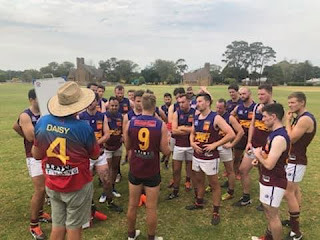NEURAL PATHWAYS - JENNIFER PETROSINO
– It might only take 30 seconds of consciously thinking
about something to build a new neural pathway but it takes hours of reps for it
to become second nature
- To make a new new neural pathway you go through cognition (learn
a new skill), association (do the new thing more) and autonomy (automatic) stages
CORRECTIVE EXERCISES
– Doing too many of them builds a fragile mentality (won't push too hard etc)
ENERGY SYSTEMS - JOEL JAMIESON
– Use a 3 day cycle starting after a rest day
- Day 1 x Stimulation (moderate volume + low to moderate intensity or low volume/high intensity neural charge work)
- Day 2 x Development (high volume/intensity)
- Day 3 x Rebound where you shift to the recovery zone
instead of taking a day off
VO2 MAX - STEVE MAGNESS
– Improvement does not
always carry over to performance improvement
- Improvements in high intensity aerobic
performance are not related to altered maximum oxygen transport capacity
- An increase
in lactate threshold can decrease performance through a decrease in anaerobic
ability
- The lacate threshold curve can improve with a decrease in aerobic capabilities if
anaerobic capacity is decreased
TEAM SPORTS - MARTIN BINGISSER
– Determine the one part of the game that best determines the
outcome then break down what skills/physical qualities are needed to do that
and train accordingly
- For rugby it’s open field abilities based around an
effective kicking game, ball carrying abilities and not conceding penalties
when the opposition has the ball
- Look at the most common elements of
the game and train the players to be able top replicate them in more
situations throughout a game
- Essentially you need to break the game down into
what really matters
GAME MODEL - RANDY SHERMAN
– Most team sports have
4 macro moments being offense, transistion defense, defense and transition
offence so you need to organise/articulate your standards/tactics in each phase
of play
- Offense is construct, penetrate, execute
- Transition Defense is disrupt, organise,
direct
- Defense is disposess, terminate, isolate
Transistion Offense is movement, direction,
space
- Detail how you’ll carry out each point of each phase and this is your
playbook
- Then evaluate each aspect post game
- In training, design/implement
more drills/games that envelope multiple macro moments rather then spending all
your time on 1 or 2 of them at a time
CREATINE - DOUG KALMAN
– Helps with oxygenation of the brain and preserving brain activity
when there is an oxygen shortage as well as reducing inflammation
- 1 to 3 grams per day can
improve brain efficiency while also improving mood offsetting depression
ATHLETE CENTERED MODEL - XAVIER ROV
- Ask questions and give your players time to answer it
which provides opportunities of active learning
- Ask 2 types of questions
- The first are low order questions that support technical development that focus mainly on the
what, when and where
- The second are high order questions designed for critical
thinking and are mostly about the why and how
- Start with low order and
gradually introduce high order
- When players know why they are doing what
they’re doing and they understand it, then you’ll likely see greater compliance
and thus performance output
PROGRAM DESIGN - STUART MCMILLAN
– The more we manipulate variables, the longer it takes to reach peak
condition
- After technique is mastered through repetition then you need to move to
solving problems presented by the game which will be a chaos based
approach
- You need to cope at the edge of chaos
SPEED - JOHN PRIOR
- Success is often determined not by how much force you can produce but how
many positions you are able to produce that force in, so strength is not the
only way to increase speed
PLAYER QUESTIONS - ANDRE SASSER
– Don’t ask "what questions do you
have?", instead ask them "do you have any questions?"
SLEEP V BRAIN - RUSSELL FOSTER
– Those who regularly have less then 7hrs of sleep/night
are more likely to develop mood/mental health problems and reduced overall
cognition
- What happens to the brain when we sleep defines how effective we’ll
be when we're awake
- You lay down memories while consolidating information gathered from the
previous day and the brain also comes up with solutions to complex problems
- A tired brain remembers negative experiences/facts and forgets the
positive experiences
- Body growth and repair happens at night
- If you have a bad experience then don’t go to bed for 6
– 8 hours so that it doesn’t instil itself in your memories too much



No comments:
Post a Comment